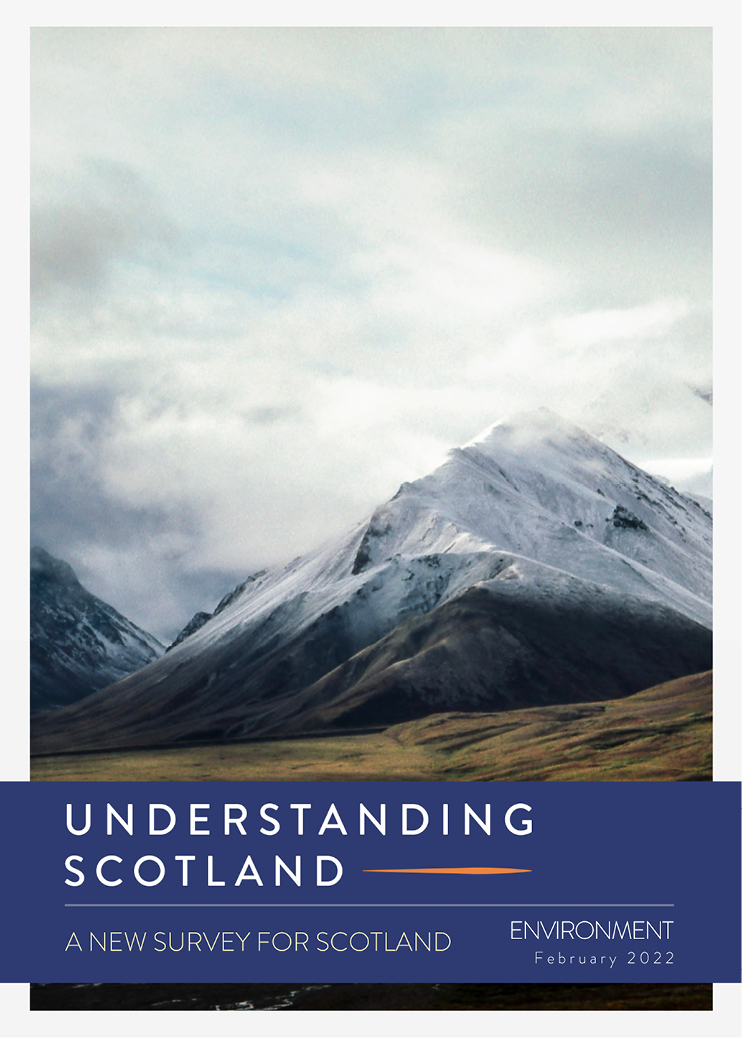We are delighted to present this Understanding Scotland report on environmental attitudes and expectations.
In the wake of the recent COP26 conference in Glasgow, this report takes the pulse of the Scottish public on fundamental environmental issues and questions.
We find a clear consensus that climate change constitutes a global emergency – regardless of sex, age or class – and most
people see it as a unifying concern.
Governments are held primarily responsible by a majority of people for tackling climate change, followed by individuals.
Most people do no believe that taking action to tackle climate change would damage the economy, though oil-rich geographical regions are more sceptical and we find limited understanding of ‘the green economy’.
We also find a clear role, in the eyes of the public, for education within the fight against climate change, with public support for a designated environmental educational institution, and for a larger role for environmental issues in curricula.
Subsequent waves of the survey will monitor changes and trends in this data. The value and insight of Understanding Scotland will grow exponentially over time, as we track, explain and anticipate long-term shifts and trends.
Key Takeaways
Our inaugural edition of Understanding Scotland brings you insights from over 2,000 members of the adult (16+) Scottish public on the most pressing environmental questions of the day.
- The Scottish public see climate change as an unambiguous global emergency
There is a clear consensus among the Scottish population that climate change constitutes a global emergency, with 4 in 5 people saying so, and only 12% disagreeing. A clear majority believed this to be the case regardless of sex, age or social grade. - The public do not see environmental concern as the preserve of the middle classes
By a ratio of 3:1 people believe that climate change is an issue that worries everybody, regardless of background. In fact, more affluent respondents appear to have internalised this notion, with a greater proportion of ABC1 respondents saying it primarily motivates more privileged individuals (24%) than C2DE respondents (19%). - People hold government most responsible for tackling climate change
58% of people overall hold Government singularly most responsible for tackling climate change. - This was followed by individuals and businesses
There is, in the public eye, a clear responsibility on us to tackle climate change as individuals, with a fifth (18%) of people saying that individuals have prime responsibility. This was followed by businesses (12%) and international bodies (10%). - Young people, however, are outliers
While there was a high degree of consistency across other age brackets in apportioning responsibility, 16-34 year olds were markedly less likely than others to hold individuals responsible (12%), and almost twice as likely to hold businesses most responsible (20%). - Most people believe that climate action would boost the economy
Overall, half of respondents disagreed with the suggestion that tackling climate change would imperil economic productivity, with only a quarter suggesting it would be harmful. Female and younger respondents were especially likely to think that it would benefit the economy. - But there is considerable variation between geographical areas
While a greater proportion of people in all areas said it would be economically beneficial than damaging, the margin was much tighter in the North East of Scotland, where 35% said that it would harm the economy. - Most people do not know much about the ‘green economy’
50% of people know ‘a little’ about what the term means, while 36% know nothing or have never heard the term. Reported familiarity with the term was higher among older and more affluent respondents. - In the minds of the public, there is a clear role for education in tackling climate change
Two thirds of the Scottish public believe a designated educational institution would support Scotland to tackle climate change, and 55% said that all higher and further education courses should include climate change education. - However, there is still more to do in this vein
Less than a quarter (24%) of people think that enough is currently being done in schools to educate young people about climate change, with 34% disagreeing.”
